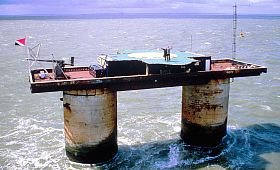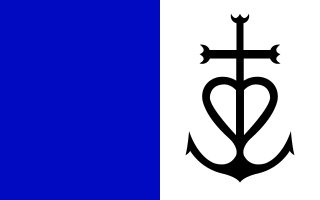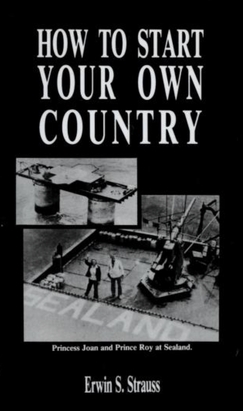
A micronation is a political entity whose representatives claim that they belong to an independent nation or sovereign state, but which lacks legal recognition by any sovereign state. Micronations are classified separately from de facto states and quasi-states; they are also not considered to be autonomous or self-governing as they lack the legal basis in international law for their existence. The activities of micronations are almost always trivial enough to be ignored rather than disputed by the established nations whose territory they claim—referred to in micronationalism as "macronations". Several micronations have issued coins, flags, postage stamps, passports, medals and other state-related items, some as a source of revenue. Motivations for the creation of micronations include theoretical experimentation, political protest, artistic expression, personal entertainment and the conduct of criminal activity. The study of micronationalism is known as micropatriology or micropatrology.

Sovereignty can generally be defined as supreme authority. Sovereignty entails hierarchy within the state, as well as external autonomy for states. In any state, sovereignty is assigned to the person, body or institution that has the ultimate authority over other people in order to establish a law or change existing laws. In political theory, sovereignty is a substantive term designating supreme legitimate authority over some polity. In international law, sovereignty is the exercise of power by a state. De jure sovereignty refers to the legal right to do so; de facto sovereignty refers to the factual ability to do so. This can become an issue of special concern upon the failure of the usual expectation that de jure and de facto sovereignty exist at the place and time of concern, and reside within the same organization.
The Grand Duchy of Avram is a micronation founded in the early 1980s by Tasmanian John Charlton Rudge, who styles himself the "Grand Duke of Avram".

Molossia, officially the Republic of Molossia, is a micronation claiming sovereignty over 11.3 acres of land near Dayton, Nevada. The micronation has not received recognition from any of the member states of the United Nations. It was founded by Kevin Baugh. He continues to pay property taxes on the land to Storey County, the recognized local government, although he calls it "foreign aid". He has stated "We all want to think we have our own country, but you know the United States is a lot bigger".

Micronations: The Lonely Planet Guide to Home-Made Nations is an Australian gazetteer about micronations, published in September 2006 by Lonely Planet. It was written by John Ryan, George Dunford and Simon Sellars. Self-described as a humorous guidebook and written in a light-hearted tone, the book's profile of micronations offers information on their flags, leaders, currencies, maps and other facts. It was re-subtitled Guide to Self-Proclaimed Nations in later publications.

The Grand Duchy of Flandrensis is a micronation with claims over some territories of Antarctica, which was founded in 2008 by the Belgian Niels Vermeersch. Flandrensis is not recognised by any country or government, nor it is in their intention to get diplomatic recognition. Since 2021 the micronation is registered in Belgium as the environmental non-profit organization “vzw Groothertogdom Flandrensis”.
MicroCon is a biennial summit or conference of micronationalists held in odd-numbered years since April 11, 2015. The event was created by Kevin Baugh of the Republic of Molossia, and every summit since has been hosted by a different micronation. MicroCon is a significant event in the micronational community, serving as a venue for exchanging ideas between micronationalists. The event has also been compared to the micronational equivalent of a session of the United Nations General Assembly. The largest edition, MicroCon 2019 in Hamilton, Ontario, Canada, had 113 attendees from 43 micronations. MicroCon 2023 was the first edition to consist of two separate events: an American summit in Joliet, Illinois, and a European summit in Ypres, Belgium.

The Principality of Snake Hill, also known simply as Snake Hill is a self-proclaimed independent sovereign state (micronation), located near Mudgee in New South Wales, Australia. Snake Hill has roughly hundreds of citizens, and claims land the size of Monaco. Snake Hill claimed independence on 2 September 2003, and Princess Paula claimed it was a right to secede, citing "The U.S., as you well know, seceded from England in 1776, It’s a remedial right, a last resort."

The Antarctic Micronational Union (AMU) is an intermicronational organization that aims to regulate micronational claims in Antarctica. The purpose of the AMU is to protect the claims of its members against other claimants.

The Principality of Aigues-Mortes is a micronation that claims the city of Aigues-Mortes. It is not recognised by any country or government.

MicroWiki is a free online encyclopedia about micronations launched in 2005. It has since become the principal way in which Internet users document micronational matters, as most do not meet Wikipedia's notability requirements. It is maintained by volunteers using the same MediaWiki software as Wikipedia. MicroWiki describes itself as "the largest encyclopedia about micronations".

How to Start Your Own Country is a 2010 Canadian documentary film directed by Jody Shapiro and written by Shapiro and Denis Seguin. Produced by Phyllis Laing and Shapiro, the film explores various aspects of micronationalism and features interviews with several prominent micronationalists. The production studios for the film are Buffalo Gal Pictures and Everyday Pictures. How to Start Your Own Country had its world premiere at the 35th Toronto International Film Festival on 10 September 2010.

How to Rule Your Own Country: The Weird and Wonderful World of Micronations is a 2022 book by Australian lawyers and legal academics Harry Hobbs and George Williams about micronationalism—exploring several micronations and their motivations for declaring independence. The book gives an overview on the topic of micronationalism and explores numerous micronations, extant and defunct, as well as their motivations for declaring sovereignty. An overarching theme is the disproportionate number of micronations located within Australia. How to Rule Your Own Country is a follow-up to Hobbs' and Williams' more academic 2021 work Micronations and the Search for Sovereignty.

PoliNation is a reoccurring summit or conference of micronationalists held sporadically since 17 April 2010. Each summit usually has academics, authors and journalists present.

Harry Hobbs is an Australian lawyer and legal academic who specialises in Australian constitutional law. An associate professor at the Faculty of Law of the University of Technology Sydney, Hobbs has published numerous works regarding the legal rights of Aboriginal Australians within Australia, micronations, and secessionism in Australia. He has collaborated with lawyer George Williams on several occasions.

How to Start Your Own Country is an American non-fiction book written by Erwin S. Strauss about micronationalism, particularly its application to libertarianism and individualism. Strauss, who holds libertarian views, believes in the abolition of the power of the state. In How to Start Your Own Country, Strauss introduces five approaches that micronations may take in an attempt to achieve statehood, and documents various micronations and their mostly unsuccessful attempts at seceding. The first book published about micronations, How to Start Your Own Country was published in 1979, with subsequent editions in 1984 by Loompanics and in 1999 by Paladin Press. The book was well-received by critics.


Although the academic study of micronations—known as micropatriology—is limited, there have nevertheless been a number of published works on the subject. The following is a list documenting these written works. This list does not contain works wherein micronationalism is the secondary theme, such as reference works which contain or make references to micronations and books about individual micronations.


















